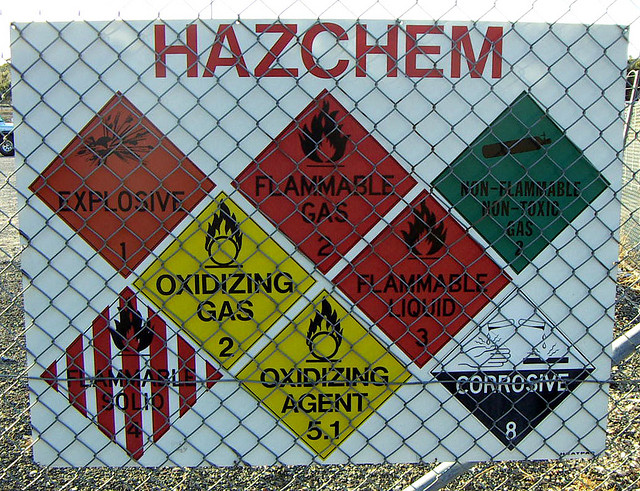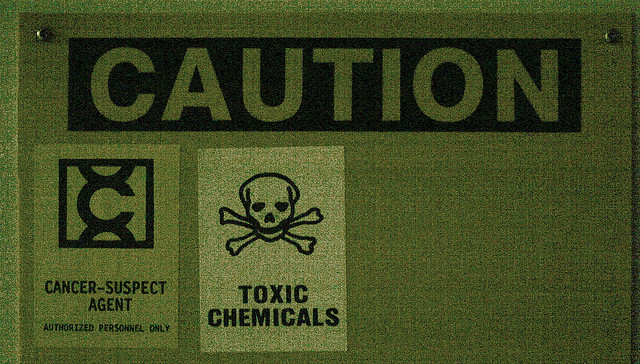In 2007, Congress added a provision to the Department of Homeland Security (DHS) budget, directing DHS to create a program to identify chemicals that might be tempting targets for terrorists, and to require facility that handle sufficiently large quantities of these chemicals of interest to establish security programs subject to DHS oversight (“Section 550”). DHS responded to Section 550 by issuing Chemical Facility Anti-terrorism Standards (CFATS) rules, requiring compliance to begin in 2008.
Audit, Compliance and Risk Blog
Congress Updates Chemical Facility Anti-Terrorism Standards
Posted by Jon Elliott on Mon, Feb 02, 2015
Tags: Corporate Governance, Business & Legal, Employer Best Practices, Health & Safety, Environmental risks, Environmental, Hazcom, Workplace violence
The British Columbia Supreme Court affirmed the reasoning of the Provincial Court trial judge that convicted a director, Mission Western Developments Ltd. and its director, Blake Larsen, of offenses under the federal Fisheries Act that occurred during land clearing operations near Wildebank Creek in Mission, British Columbia (R. v. Larsen, 2013 BCPC 92, affirmed 2014 BCSC 2084). In rejecting the appeal by the accused, the Supreme Court held that the Provincial Court judge had applied the correct legal principles for determining the necessary elements to obtain a conviction for impairment of fish habitat under the Fisheries Act. These principles were:
Tags: Corporate Governance, Business & Legal, Health & Safety, Environmental risks, Environmental, Canadian
After a facility determines it has generated hazardous waste, it must determine how to manage that waste in compliance with the federal Resource Conservation and Recovery Act of 1976 (RCRA), regulations issued by the US Environmental Protection Agency (EPA), and their state equivalents. (I recently wrote about hazardous waste determination, here and here).
Tags: Corporate Governance, Health & Safety, Environmental, EHS, EPA, Hazcom, RCRA
EPCRA Tier II: Key State Differences for Chemical Inventory Reporting
Posted by Melanie Powers on Wed, Jan 21, 2015
Tags: Corporate Governance, Business & Legal, Health & Safety, EHS, Hazcom, STC, Webinar
Could a Christmas tree find a second job? Yes, as it matter of fact it can. Every year in late December, early January and, in some cases, as late as February, certain researchers, environmental groups and wildlife agencies in North America begin sinking Christmas trees in lakes and ocean waters in the hopes of creating habitat for various types of fish.
Tags: Corporate Governance, Business & Legal, Environmental, corporate social responsibility
Hazardous Chemicals: Our Communities Have the Right to Know
Posted by STP Editorial Team on Wed, Jan 14, 2015
Our communities have the right to know when they are at risk of exposure to dangerous substances from accidental releases such as, but not limited to, chlorine, ammonia, hydrochloric acid, and sulfur dioxide. The US Environmental Protection Agency (EPA) agrees. In 1986 EPA created the Emergency Planning and Community Right-to-Know Act (EPCRA) to help communities plan for just such emergencies. EPCRA requires that federal, state, and local governments, Indian tribes, and industries be prepared for hazardous chemical emergencies. It also requires facilities to follow all recordkeeping requirements and report the storage, use, and release of hazardous chemicals to federal, state, and local governments.
Tags: Corporate Governance, Business & Legal, Employer Best Practices, Health & Safety, Employee Rights, Environmental risks, Environmental, EHS, EPA, Hazcom
BC Supreme Court Affirms “Polluter Pays” for Site Remediation
Posted by Kristen Brewer on Mon, Jan 12, 2015
Tags: Corporate Governance, Business & Legal, Environmental risks, Environmental, Canadian
The Occupational Safety and Health Administration (OSHA) has updated its recordkeeping rule to expand the list of severe injuries (including amputations) that all employers must report. An increase in good reporting and recordkeeping is a best management practice and an essential part of helping employers ensure and maintain the safest working environments for their employees.
Tags: Corporate Governance, Business & Legal, Employer Best Practices, Health & Safety, OSHA, Employee Rights, Disability benefits
Chemical Safety Board Recommends Better Process Safety Management
Posted by Jon Elliott on Mon, Dec 15, 2014
Within the U.S., most chemical safety requirements are imposed by the Occupational Safety and Health Administration OSHA) and the Environmental Protection Agency (EPA). For example, OSHA (or delegated state agencies) administers a Process Safety Management (PSM) Standard, while EPA (or delegated state agencies) administers the Accidental Release Prevention (ARP) regulation. In addition to these sets of regulators, however, Congress has created a national agency to conduct independent investigations of major chemical accidents, and to issue accident-specific findings and specific or general recommendations for improved chemical handling and regulation. This agency’s formal name is the Chemical Safety and Hazard Investigation Board—which usually refers to itself as the Chemical Safety Board or CSB.
Tags: Corporate Governance, Business & Legal, Health & Safety, OSHA, Environmental risks, Environmental, EPA, Hazcom
Do You Need A Corporate Social Responsibility Policy?
Posted by Allison Campbell on Thu, Dec 11, 2014
Twelve years ago, a client asked a financial advisor at a large investment firm for advice on “socially responsible investments.” The advisor said that they didn’t offer much in that field, because there was no client demand. How things have changed! Now, large investment firms as well as local credit unions and even small, family-owned businesses are all anxious to demonstrate that their business is “socially responsible,” “green,” or “gives back to the community”—all values reflected in the concept of Corporate Social Responsibility (CSR). More than feel-good slogans, these terms represent initiatives that offer concrete benefits to both a company and its stakeholders, including customers and the wider community.
Tags: Corporate Governance, Business & Legal, Environmental, csr, corporate social responsibility










